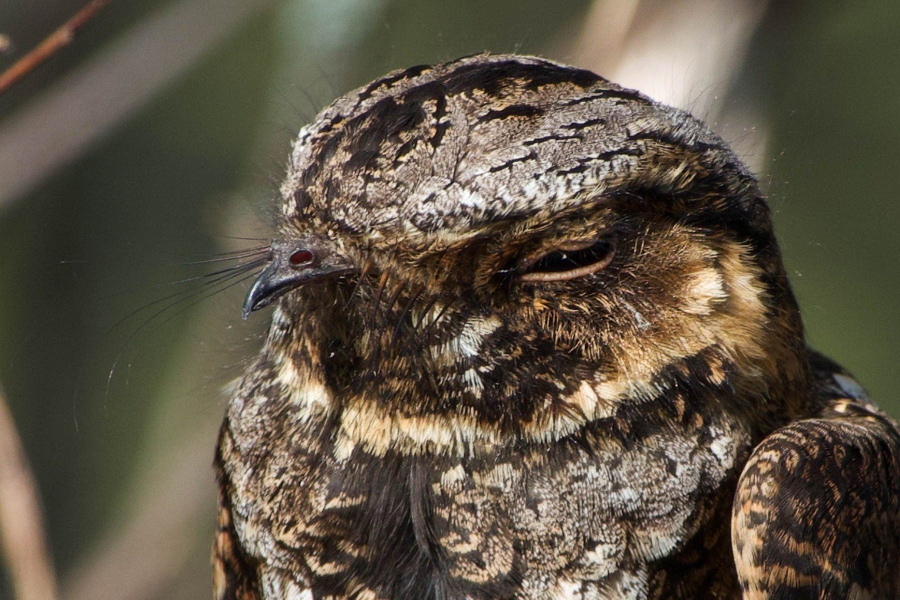The Eastern whip-poor-will is a vocal night-time forager who is attuned to the moon
This native bird was named after its distinctive call

As a nocturnal bird, the Eastern whip-poor-will spends its days sleeping on logs and branches near the forest floor. The bird is perfectly camouflaged by its mottled brown and gray colors, and will even rest its neck in such a way that it resembles a branch. Quite literally a bump on a log.
But by night, the bird comes alive.
Right around dusk the bird’s whip-poor-will call can be heard echoing across the forest. During summer nights when the bird is defending its breeding territory, it makes its distinctive call repeatedly without a break. According to the Cornell Lab of Ornithology, an observer once counted 1,088 whip-poor-wills made in succession without a pause.
When not singing, the whip-poor-will spends its night foraging for food. The bird eats insects only, especially flying insects like moths, beetles and mosquitoes. They have many adaptations that help them hunt down the bugs needed to feed themselves and their young. First, they are talented flyers with strong wings. They typically perch on branches low to the ground and fly out to catch insects, sometimes flying completely vertically. The bird also has whiskers on its mouth called “rictal bristles” that it uses to sense vibrations from nearby insects.
The eastern whip-poor-will has great eyesight as well. Like owls and other nocturnal animals, the bird has a reflective layer of tissue in the eye that helps them see in low-light. It’s the same feature that gives deer the eyeshine that appears when looking at vehicle headlights at night.
But whip-poor-wills don’t only rely on their eyesight to forage. They also use the moon!
When the moon is at its brightest, the whip-poor-will hunts for insects all night long. The bird is so attuned to the moon that it will time its egg laying so that the eggs hatch roughly ten days before a full moon. This allows the bird to have as much moonlight as possible to gather insects for its young.
While the whip-poor-will can be found across the eastern United States, its population is sadly on the decline due to habitat loss.To ensure that the whip-poor-will call does not fade from existence, we must continue to conserve and maintain forests across the Chesapeake Bay watershed.

Comments
There are no comments.
Thank you!
Your comment has been received. Before it can be published, the comment will be reviewed by our team to ensure it adheres with our rules of engagement.
Back to recent stories